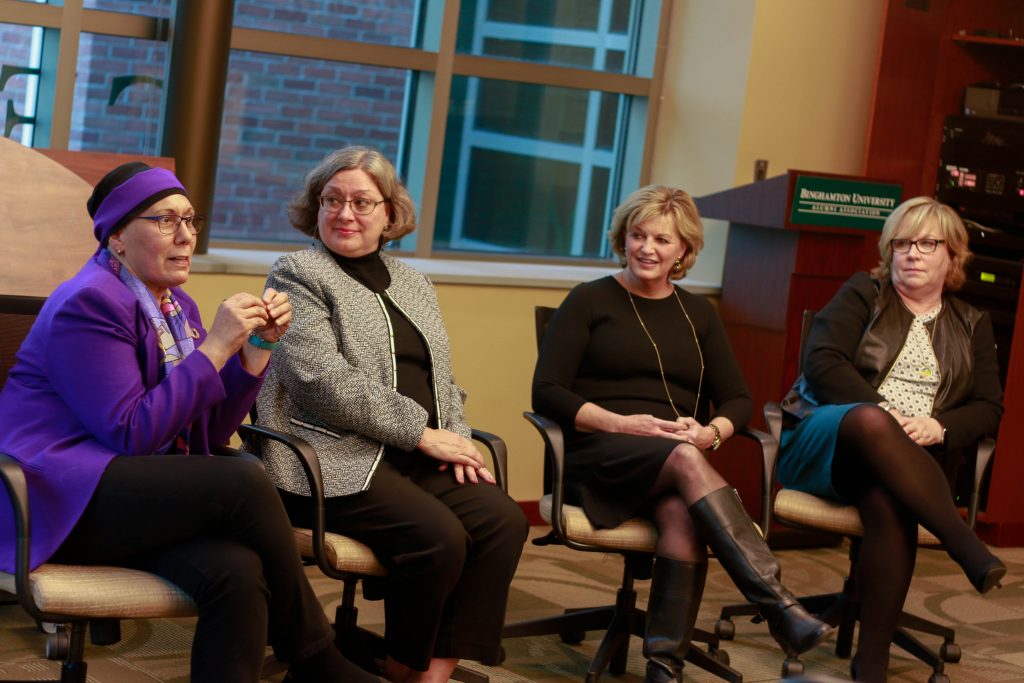
The only difference between Jean Harris, ‘88, and her colleague was their gender. Both had doctorate degrees in political science, but she was cited as “Mrs.” and he as “Dr.” in newspaper articles regarding their research.
Harris was one of four graduates of Binghamton University’s political science Ph.D. program who spoke at the “Powerhouse Women with Poli Sci Ph.D.s” panel Thursday evening to discuss the challenges of being a woman in academia.
The speakers were Lorrie Clemo, ‘98, president of D’Youville College; Michelle Piskulich, ‘92, associate provost at Oakland University; Nadia Rubaii, ‘91, associate professor of public administration at BU; and Harris, a professor of political science at the University of Scranton.
Harris said she’s faced challenges in her career because she’s a woman. After applying for a grant to research female inmates in New York state prisons, she was denied funding, despite the fact that her co-worker received a grant for the same research on male prisoners, she said. After completing her doctorate, she applied for a position at the University of Scranton in the combined department of history and political science. When hired, she was the only woman in the 15-person department.
Piskulich said she also struggled with gender inequality as an undergraduate at the University of Missouri, where she pursued journalism.
“I wanted to cover politics,” Piskulich said. “I got assigned to cover religion and feature writing, and that’s primarily where women were in journalism, so I decided the way to combat that was to get a degree in political science.”
All four women noted that they overcame inequalities and gained success by using tools they learned at BU. Rubaii advised students to take part in a diverse amount of activities, both academic and nonacademic, to gain a wider net of career opportunities after graduation.
“Binghamton has a wealth of opportunities for students to pursue multiple majors,” Rubaii said. “I think you have to look for opportunities to find support from others — peers, mentors, colleagues from other units, and be that support for other people.”
The event included an informal, interactive Q&A section followed by networking opportunities for students. Stephanie Crombie, a senior majoring in psychology, said the panel was important in addressing women breaking barriers in the workplace.
“The importance of the event is to show women can do anything,” Crombie said. “There is still a stigma about women in high-level positions.”
According to Tenley Halaquist, program coordinator for student and alumni engagement at BU, the event was an effective way for students to network with notable alumni.
“It is a great way for students to build professional relationships with knowledgeable alumni,” Halaquist wrote in an email. “All of the alumnae hold leadership roles in their current organizations and wanted to share their knowledge and experiences with students.”
The panelists agreed that it’s most important to stay true to oneself, and that success in one’s career comes not from one’s gender, but through hard work and passion.
“We say we’re lucky — women always say that,” Harris said. “But we deserve it.”


